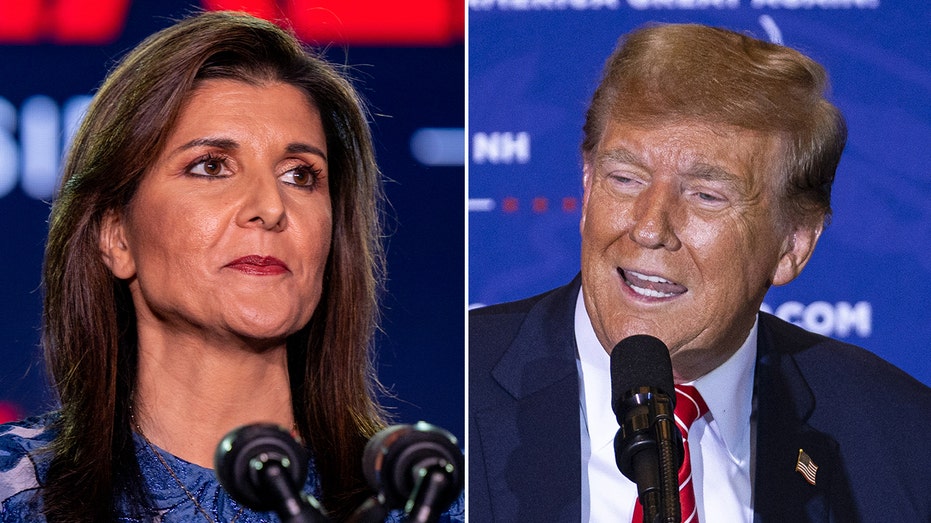Is Keir Starmer the Gareth Southgate of politics?
Like the England Manager, the Labour leader helms a united team ready to face up to 14 years of hurt (electoral defeats). But the nation’s hopes could so easily turn to soul-crushing despair if the next government fails to bring it home, says Emma Revell If it doesn’t work out as England manager, Gareth Southgate [...]


Like the England Manager, the Labour leader helms a united team ready to face up to 14 years of hurt (electoral defeats). But the nation’s hopes could so easily turn to soul-crushing despair if the next government fails to bring it home, says Emma Revell
If it doesn’t work out as England manager, Gareth Southgate has a bright future as a life coach, or a camp counsellor. In his eight years at the helm of our national game, he may not have learned much about tactical organisation or when to make substitutions. But he has encouraged and nurtured a host of young and not so young players to become exemplary role models.
Gone are the days when footballers fell out of clubs at 3am or got caught doing 100mph on the M1. Today’s Lions are, depending on your opinion, the perfect role models or virtue-signalling pin-ups: campaigning for free school meals, wearing rainbow shoe laces to tackle homophobia (except in Saudi Arabia), and taking the knee in the name of anti-racism. They stand alongside the Lionesses to support women’s participation in the beautiful game and mostly manage to keep their off-pitch liaisons to one woman at a time (though perhaps someone should mention that to Kyle Walker).
Hell, entire plays have been written about the softly spoken Londoner’s ability to develop a team that feels like a family and represents ‘modern Britain’. His squad come from every corner of the country, play for the best clubs across the world, and are a model of diverse, inclusive Britain: as many as 20 of the initial 33 man squad announced back in June could have, by virtue of birth or their parents’ nationalities, played for another country. No wonder Joseph Fiennes lept at the chance to tread the boards at the National in the gaffer’s trademark waistcoat.
When he became Labour leader back in 2016, Keir Starmer took a similar approach to his footballing counterpart. He didn’t make sweeping tactical changes, but over time, helped hugely by the EHRC review on antisemitism, he made his team more representative of modern Britain. He cleansed the Opposition front bench of the Corbynites. He positioned himself at the helm of a united Labour Party which was ready to face up to 14 years of hurt, atone for its sins, and free itself from the shackles of three successive electoral failures.
No one can deny that for more than a year now, the Labour Party has sought to project coherence, competence and calmness in setting out its vision for what a Starmer-led government could deliver.
But sometimes, success is about more than just winning. England might be into the quarter finals for our fourth consecutive major tournament but you can’t find anyone who’s happy about how it happened. Indeed, neither the media nor the general public have been backwards in coming forward with their views on the team’s recent performances. A lack of drive, uninspiring tactics and an unwillingness to change tack when things patently aren’t working have all pushed the England manager and his key players into making increasingly defensive statements to the press, basically begging us to just trust them.
If one were feeling ungenerous, you could suggest Starmer is going to stride into Number 10 simply off the back of not being a Conservative.
The bar may be on the floor but the scale of the challenges facing Britain are so great we cannot comfort ourselves with the fact that the next government may get on better than the current one, as if that is enough. Just getting to the World Cup semi-final won Southgate an award at Sports Personality of the Year. But Starmer needs to really deliver after 4 July if he is to avoid falling into the same trap as the England manager.
On housing, plans for new towns and building on the green belt need to see shovels in the ground within the first year. On health, Wes Streeting needs to end the junior doctors’ strikes and open the doors for private providers to help tackle the NHS backlog. On public spending, Rachel Reeves needs to hold firm on promises to be a friend to business and to wealth creators, not default to instinctive money grabs which will leave us all worse off.
Southgate may still take England to a tournament title swiftly followed by a knighthood and permanent canonisation as a national treasure. But so far, the Euros have seen the country’s admiration for the coach turn to soul-crushing despair. If Starmer wants to avoid the same trajectory, he needs to make sure his new government brings it home.
Emma Revell is external affairs director at the Centre for Policy Studies


